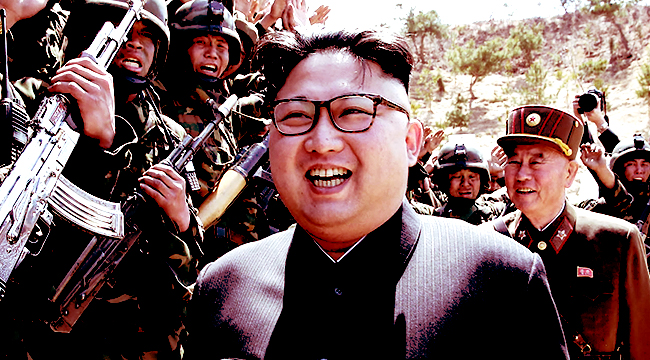
North Korea has been making noises about being willing to talk with the U.S. about abandoning its nuclear program. President Trump officially accepted an invitation to speak with Kim Jong-un “by May,” although Secretary of State Rex Tillerson tossed cold water on expectations by saying the meeting would simply include “talks,” not “negotiations,” because it’s too soon for the latter. Well, it seems like the two nations are coming to the table with different hopes, and this might set the stage for a showdown after a hand-shaking photo op.
Bloomberg sources a South Korean official (as reported by the the Dong-A Ilbo newspaper), who claims that Kim Jong-un will ask Trump to sign a peace treaty as a precondition for nuclear disarmament. Whereas the U.S. has not agreed to any particular agenda during the talks and wants to hold off on such a treaty until after North Korea puts down the nukes. The report quotes South Korean professor Koh Yu-hwan on the difficult logistics:
Koh Yu-hwan, who teaches North Korean studies at Dongguk University in Seoul, said [that] signing a peace treaty would require addressing issues regarding the U.S. military’s presence in South Korea and its transfer of wartime operational control to South Korea and United Nations forces in South Korea.
Indeed, while North Korea has long sought a peace treaty for its own safety, it’s not simply a matter of Trump signing away on an agreement. Currently, South Korea hosts about 23,000 U.S. troops (and over 300 tanks) at 83 different sites. That’s in addition to another 40,000 U.S. troops in Japan and the use of Guam as a “permanent aircraft carrier,” all near North Korea.
A peace treaty would require a substantial reconfiguration for the U.S. military’s Pacific strategy, and these changes can’t happen overnight. In other words, Kim Jong-un and Trump might very well continue their East-West rap beef in person this spring. Hopefully, there will be cameras involved.
(Via Bloomberg, The Guardian & Australian Broadcasting Company)
